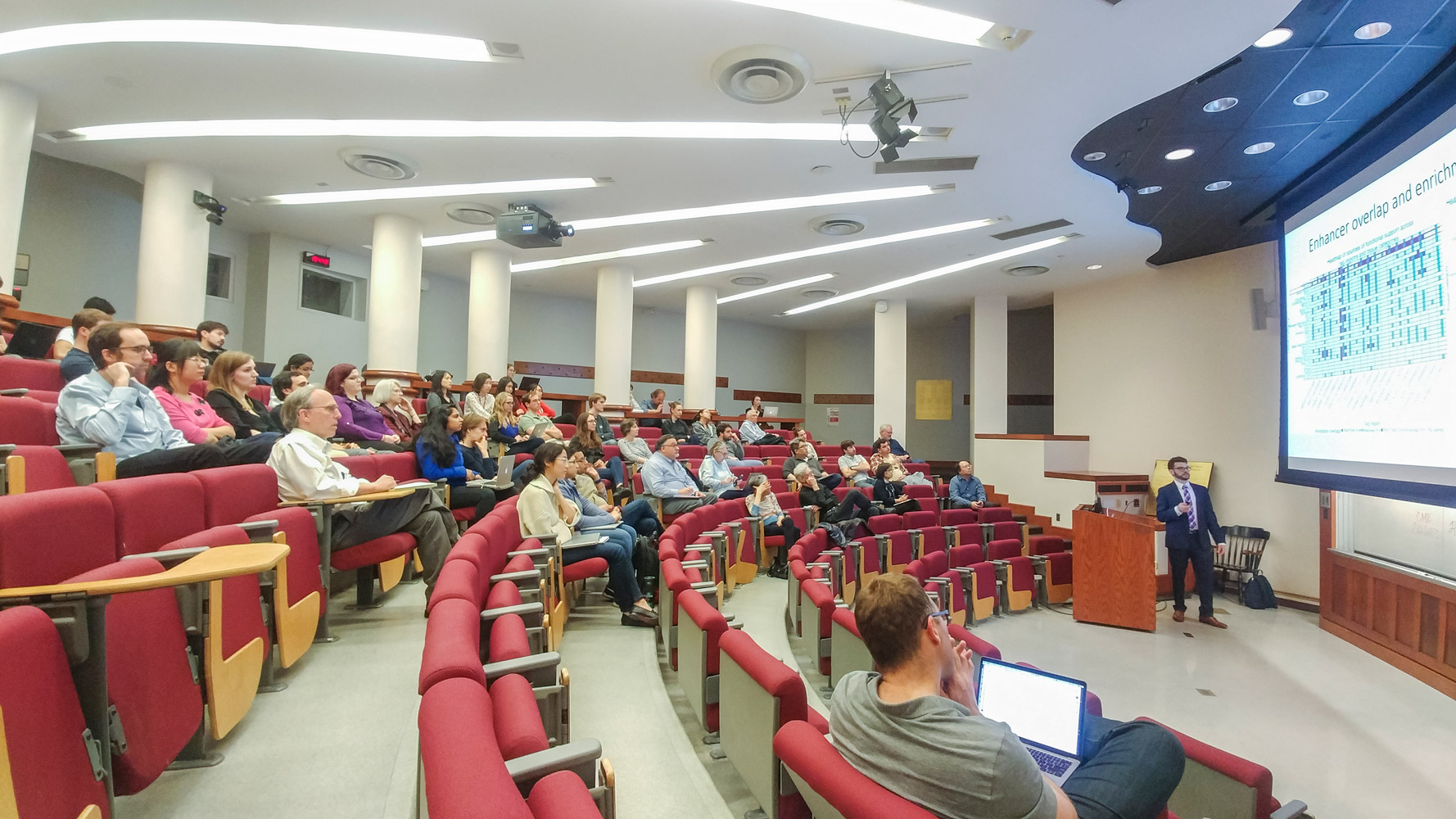
On Friday, April 12, Genomics and Computational Biology student Alex Amlie-Wolf defended his Ph.D. thesis. His work during his time as a student in the GCB program included the development of the INFERNO method, a software tool and web server that integrates public genomic data with GWAS summary statistics to characterize the mechanisms of noncoding variants underlying association signals. His thesis work included applying INFERNO to the analysis of genetic associations with a range of neurodegenerative diseases, including a detailed analysis of Alzheimer’s disease signals with experimental validation and the analysis of a large genomic inversion underlying progressive supranuclear palsy. He also worked on the development of HIPPIE2: a method for the fine-scale identification of physically interacting chromatin regions. Alex gave a great, in-depth presentation detailing his work, and there was a great turnout for the talk. After graduation, Alex plans to apply his computational training in the biotechnology field to develop new ways to identify drugs for neurodegenerative diseases. PNGC congratulates Alex on this great accomplishment and wishes him luck in his future endeavors!